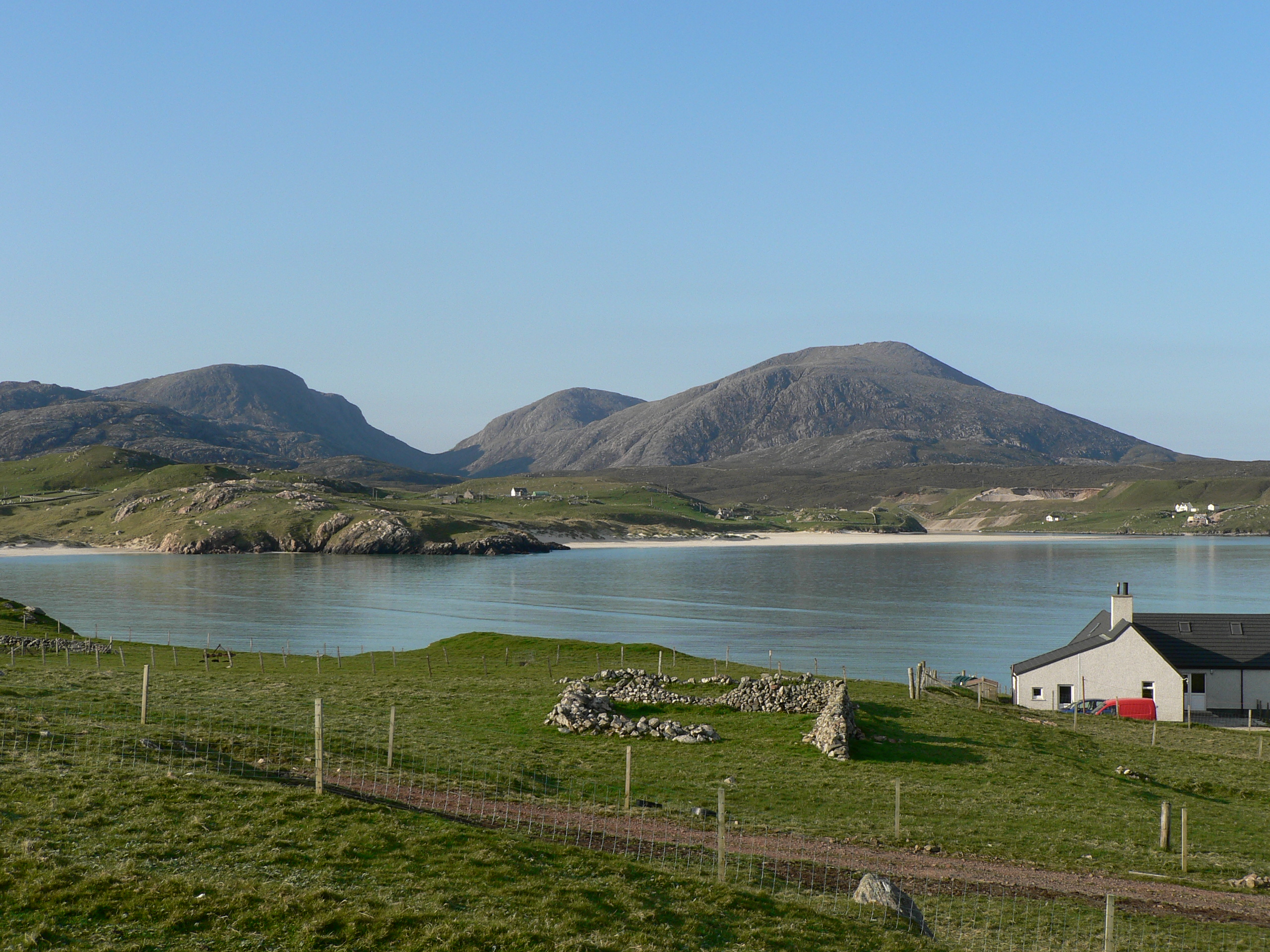Tag: erista
An Incident at Erista
Rev David Watson’s Boundary Dispute
David Watson was ordained as minister of Uig in 1845 but as the congregation had mostly migrated to the Free Church, his Church remained largely empty. He was at odds with the people and the estate, as the following notes in the 1851 diary (published by Acair) of the Chamberlain John Munro Mackenzie attest:
Thursday 13 February
Walked to the Manse of Uig and found Mr Watson busy planting potatoes and clearing his arable land of Stones with a number of men employed. Went to the Parish School [at Taigh Chiosamuil] & found it quite crowded there being more than 40 scholars present, and on enquiring the cause was told that Mr Watson gave notice to the people that unless they sent their children to school he would pindfold every sheep & cow of theirs he found on his grass – He expects to get the parents to attend his Church in the same way but I fear he will be disappointed.
Monday 24 March
Went to office and was engaged meeting parties viz… Rev Mr Watson regarding claim for damages for not clearing his farm of Mr Mitchell and small tenants at Whitsunday last, tho’ he agreed and wished to accommodate Mitchelll – Got him to sign a Minute drawn up by Mr [Donald] Munro agreeing to withdrawing his claim & promised to give him the small place of Miavaig which lies into his farm, there are three small tenants here at present occupying it who can be removed to Carishader in place of those going to America.
Thursday 15 May
Went to office and was engaged meeting & paying Ministers Stipends & Schoolmasters salaries — The Rev Mr Watson produced a most extraordinary a/c of £31 made up of various idle claims for damages for mans not being repaired, damages to pasture etc etc which I denied & refused payment in toto and stated to Mr Watson my surprise at his presenting such an a/c – He replied that he would not have done so but that he was hard pressed for cash, having to pay the whole of his stipend for his stock, I offered to give him some delay in the payment of £20 to £30 if he withdrew the a/c which he refused but wished to refer it which I refused as I considered the whole to be absurd –
Recruitment in 1793
From a manuscript by (as far as I can make out) Rev Col AJ Mackenzie, son of Roderick Mackenzie, gamekeeper at Luachair and Uig Lodge. According to tradition, men were compelled to join the army when Seaforth was raising the 78th Seaforth Highlanders in 1793. When he arrived in Lewis, the men of Uig took to the hills and established themselves at Cnoc a’Champ, near the site of Uig Lodge, and a boat rowed by women was sent to meet Seaforth at Callanish. Seaforth was not best pleased and set off with the minister, Rev Hugh Munro, to speak to the men. Rev Munro persuaded them to be more patriotic, and an assurance was given that only one son would be taken from a family, or two where the family was large. The minister’s own son, Ensign John Munro, was enlisted in 1804 and subsequently killed at Java. AJ Mackenzie here looks at the traditions surrounding the giving of the King’s shilling, particularly in light of the assertion by Chamberlain John Munro Mackenzie (grandson to Rev Munro and author of the published Diary of 1851) to the Napier Commission that enlisting was voluntary.
The primary object of Munro Mackenzie’s examination by Lord Napier’s Commission was apparently to discover what were the means employed by Seaforth and his officers in procuring recruits for his regiment – whether recruiting was by compulsion backed by threats of eviction, or by voluntary enlistment backed by promises of future reward.
This is a point on which I have never been able to find definite information. Mackenzie in his evidence was emphatic on the point that there was no compulsion of an sort, and so far as I know there was no recognised authority that could compel a man to join the army. Yet in the traditions of the people themselves there is the definite impression, whether mistaken or not, of a time when men were compelled to send their sons into the army. Again and again I have heard reference to a time when men were compelled by some authority to join the army – “an uair a bha iad ‘gan toirt air falbh do’n arm“. Four incidents bearing on this point occur to me.
There used to be pointed out on Fidean Eristeadh a remarkably wide ditch which was alleged to have been jumped by a young man of the village when pursued by soldiers who were seeking to apprehend him for military service. In this case, however, it is just possible that the man was a deserter, and that his pursuit by soldiers was in accordance with military law.

